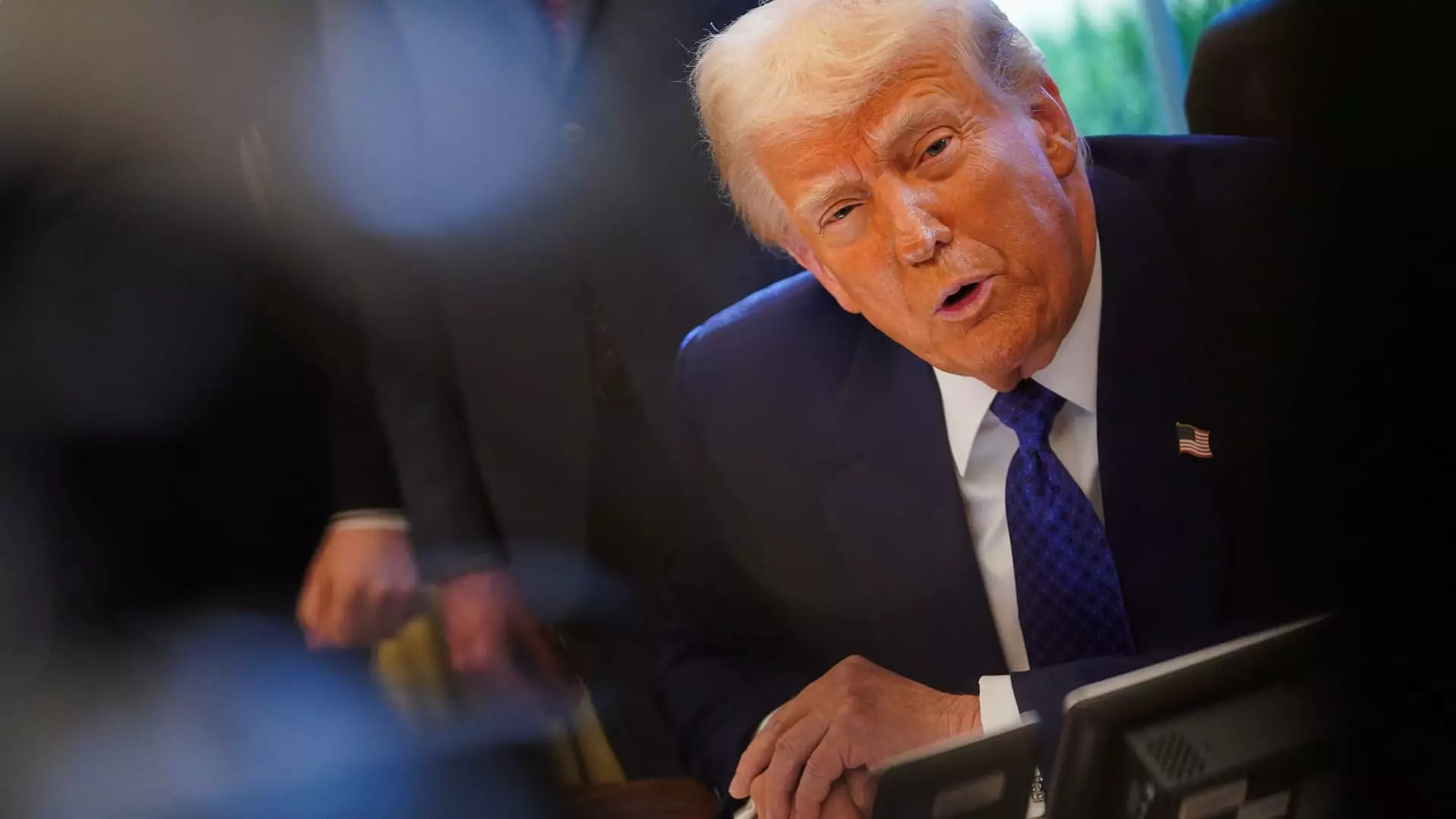The ongoing conflict between Ukraine and Russia has not only shaped the geopolitical landscape of Eastern Europe but also sparked interest among U.S. officials in the region’s abundant natural resources. Recently, a proposal emerged from the Trump administration that suggests a strategic alliance with Ukraine whereby the U.S. could obtain a 50% ownership stake in the country’s rare earth minerals. This unconventional approach raises numerous questions about the motivations behind such a deal, its ramifications for Ukraine’s sovereignty, and the broader implications for international relations.
Rare earth minerals are crucial components in the manufacturing of advanced technologies, including smartphones, renewable energy systems, and defense equipment. With only a handful of countries possessing significant reserves, these minerals hold not just economic value but also geopolitical leverage. The suggestion that the U.S. would receive half of Ukraine’s rare earth resources as a form of repayment for military aid provided since the onset of the conflict in February 2022 indicates a shift in how military assistance is perceived and negotiated. This proposal, couched as a means for Ukraine to repay the billions spent on defense, also implies a symbol of power dynamics where Ukraine’s assets may be used to service debts rather than promote national growth.
Treasury Secretary Scott Bessent’s presentation of the draft agreement to President Volodymyr Zelenskyy during a meeting in Kyiv sparked immediate reactions. Zelenskyy, while acknowledging the need for further evaluation, was cautious in his acceptance of such a significant deal. This reluctance reflects a broader sentiment within Ukraine regarding its sovereignty and the implications of foreign ownership over critical resources. By presenting the agreement as a memorandum rather than a security pact, Zelenskyy attempted to navigate the thin line between securing necessary support and retaining autonomy over Ukraine’s resources.
The proposal has been characterized as a potential reimbursement mechanism rather than a straightforward military aid package; this raises moral and ethical questions around the commodification of national resources in exchange for support. Zelenskyy’s statement that Ukraine would face “a low chance to survive without support of the United States” underscores the desperation felt by his administration in the face of Russian aggression. Yet, this desperation might blind the nation to the long-term consequences of conceding a notable portion of its natural resources.
The contingent aspect of the deal—potential U.S. troop deployment to safeguard the minerals—adds another layer of complexity. While U.S. Defense Secretary Pete Hegseth publicly stated that no troops would be sent to Ukraine as part of any security guarantee, the conflicting messages from lawmakers like Vice President JD Vance suggest that military involvement is still under consideration. This dichotomy creates uncertainty and potential internal division within the U.S. administration regarding the future course of action in Ukraine.
The prospect of American boots on the ground in Ukraine, particularly if Russia fails to engage sincerely in negotiations, raises alarms about an escalating U.S. commitment to the conflict. Such deployments would not only deepen American involvement in the war but potentially provoke additional hostilities from Russia, which could lead to unforeseen consequences on a global scale.
As the situation unfolds, reactions from both Ukrainian officials and American lawmakers will play a critical role in shaping the ultimate outcome of this proposal. Zelenskyy’s approach, characterized by careful deliberation and consultation, contrasts sharply with Trump’s assertive and transactional style of politics. The former’s cautiousness aims to protect Ukraine’s interests while still courting U.S. aid, which he deems vital for survival.
Moreover, the broader implications of such agreements extend beyond Ukraine; they may set precedents for how Western nations engage with other resource-rich nations in similar conflict situations. This scenario invites scrutiny into the ethicality of using military assistance as leverage for resource acquisition—an approach that, if broadened, could lead to a realignment of global power structures and alliances.
As the U.S. and Ukraine navigate the complex interplay of military support and resource management, it is imperative for both parties to consider the long-standing implications of such deals. The path forward will require careful negotiation, clear communication, and a commitment to mutual respect for sovereignty and governance. The stakes are high, and the world will be watching closely as events continue to unfold.



Leave a Reply